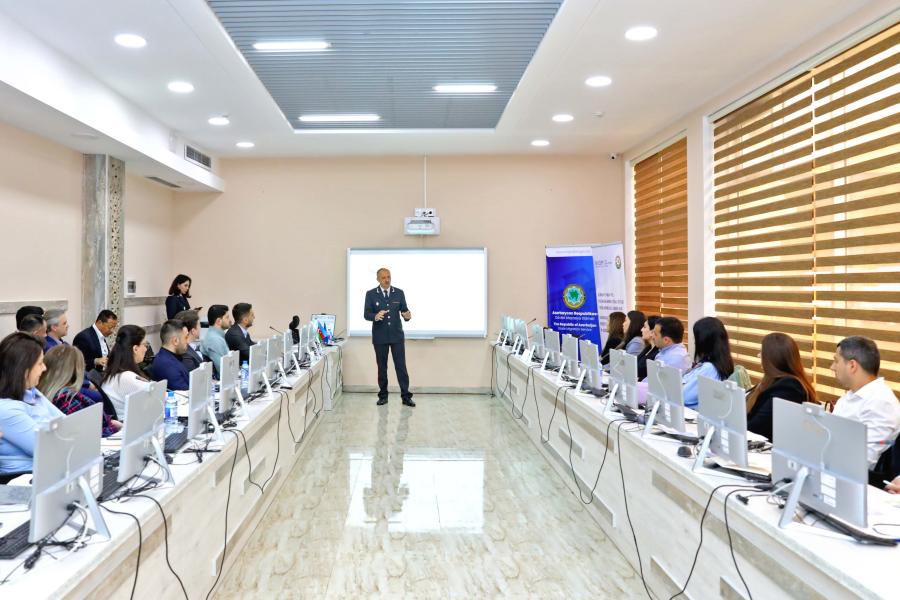Empowering financial service providers in Azerbaijan to address financial needs of migrants
20 May 2024
The value of this training is that it is a two-way learning between the private sector and the government, which aligns with the whole-of-society approach principle of Global Compact for Migration calling for broad multi-stakeholder partnerships to address migration in all its dimensions.

Between 7 and 10 May, IOM Azerbaijan organized a series of capacity-building trainings for over 50 customer service specialists representing bank branches and post offices that serve migrants the most. The event was held at the Regional Training Centre on Migration within the “Enhancing the Socioeconomic Benefits of Remittances in Azerbaijan” project, implemented in cooperation with the State Migration Service and with funding by the IOM Development Fund.
An estimated 1 million Azerbaijani nationals live abroad, and 100 thousand migrants reside in Azerbaijan, all of whom use various financial services, including sending and receiving financial remittances. Even though the assessment, conducted in 2023, concluded that remittance cost in Azerbaijan is already below 3%, as aimed by SDG 10.c, and financial inclusion of migrants in the country is high, still there is a room for improvement in terms of better addressing migrants’ financial needs. Hence, in line with the roadmap approved by project’s Working Group, six major banks in Azerbaijan (AFB Bank, Xalq Bank, Rabitabank, ABB, Kapital Bank and Bank Respublika) and Azerpost (national postal service) were invited to one-day trainings, the aim of which was to foster a customer service that is more aware of and can better address the specific needs of migrants and persons in vulnerable situations.
The event was opened by Mr. Amr Taha, IOM Chief of Mission a.i. in Azerbaijan and Mr. Vahid Gahramanov, Chief of Head Department of the State Migration Service. The training focused on rights of migrants – including refugees and asylum seeker; their access to financial services with the different identification cards provided to foreign residents in Azerbaijan; and digital authentication of documents. Furthermore, the financial service providers were trained in customer due diligence and know your customer rules; understanding migrants’ financial needs; inter-cultural competences and understanding of persons in vulnerable situations.
The Director of “INNOLAND” Incubation and Acceleration Center, Mr. Nijat Amiraslanov moderated a competition during which participants, divided into groups, came up with innovative solutions to address the financial needs of migrants. Participants proposed creative and innovative ideas on seamless integration of government and bank portals, cashback cards and discounted products to migrants and nationals, offering multilingual services, and more.
The training was well received and in the words of a participant, “This training enabled us to understand better the financial needs of an important segment of Azerbaijani society – migrants. We are enthusiastic that our bank is continually improving the services we offer to make their stay in Azerbaijan as comfortable as possible.”
Studies have demonstrated that every additional 1% of immigration could boost GDP growth in destination countries by 2%. As Azerbaijan’s economic growth continues, and as it also expands in different sectors, the role of migrants will continue to grow – just as Azerbaijani emigrants contribute to economic development across the world.
The value of this training is that it is a two-way learning between the private sector and the government, which aligns with the whole-of-society approach principle of Global Compact for Migration calling for broad multi-stakeholder partnerships to address migration in all its dimensions.
This training supports SDG 10 on Reduced Inequalities and GCM objective 20 to promote faster, safer and cheaper transfer of remittances and foster financial inclusion of migrants.


